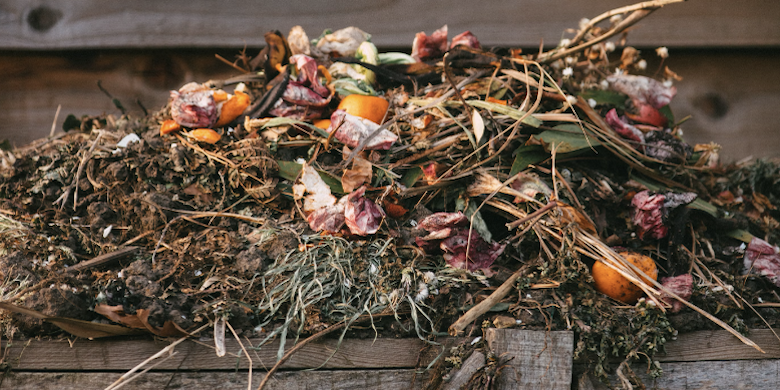It was a spring evening and we had just finished dinner. Excited about the warmer air that would bring more garden opportunities in the coming days, our conversations moved from spring plantings to tools needed for soil preparation. Speaking of soil, I remembered that I needed to take the food waste from the last couple of
days out to our compost bin. The sun had set and I made my way across the garden to the back corner of our yard. I opened the gate, stepped forward and tossed the contents of our stainless-steel bucket onto a heap on the side of our compost station that held the raw ingredients. ~ Merchantville resident Ron Smith
The benefits derived from composting are many. Efficient composting leads to a considerable reduction of the weight in the rubbish bins put out weekly. Consider the makeup of a typical trash bin. Given that food waste is heavier by comparison than many of the other things that end up in the trash, one estimate is that between 50% and 75% of the contents (by weight) are often able to be composted. The rich, earthy soil generated by composting will not only serve as a nutrient boost in your garden but will also serve to improve the overall health of your soil - adding moisture holding capacity, providing nourishment for invertebrates and microbes, and setting the stage for a more balanced backyard ecosystem. A common concern of those who consider composting is a bad smell. If you follow a few simple rules, this will not be an issue and your compost will smell like the rich, earthy soil that it is destined to become.
•
Add combinations of dry and wet materials. Leaf litter, cardboard (check for any chemical
treatments that may have been applied - avoid using if so) and straw can serve as the
dry carbon materials while wet materials are largely produced from your daily food prep.
Veggie and fruit scraps, eggs shells, coffee grinds can all be added to the mix.
•
If you are lucky enough to have backyard chickens, the pine shavings and chicken poo
make a wonderful addition to your compost heap as well.
•
Do not add cat or dog waste or meat products and minimize oily materials like butter
and vegetable oil.
Mix your compost regularly. You may choose to have two or three adjacent bins as part of
your compost station so that you can move the compost from one stage to the next easily.
Make this part of your weekly garden chores - it only takes ten minutes to do. If you happen
to have backyard chickens, let them explore the compost as they will assist with the core of
turnover. As you become a composting pro, you will find come spring and again in the fall,
that you will have lovely, healthy, dark, nutrient-laden soil that will make you and your garden
happy. And you will be helping the planet as well!


